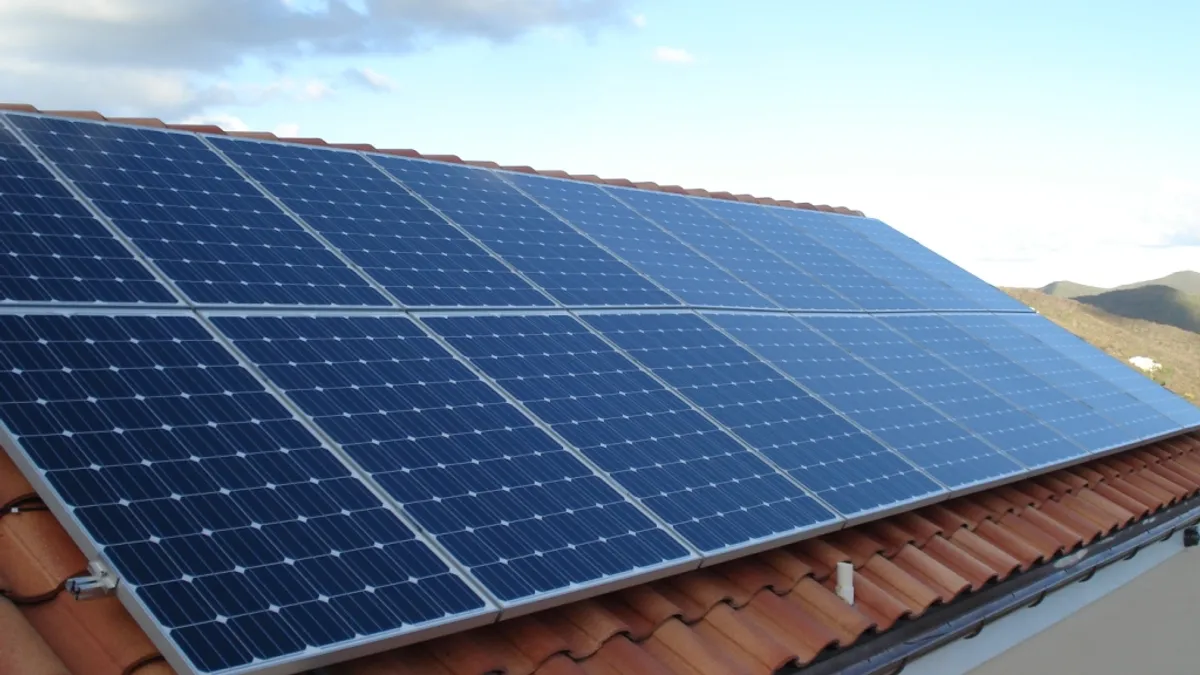Dive Brief:
- Xcel Energy and Colorado solar interests have filed a compromise in the utility's general rate case that would avoid new grid fees, prevent cuts in payments to solar owners, and institute time-of-use rates (TOU), among other changes.
- Xcel had sought to institute new grid access fees for solar owners and reduce the volumetric (per kWh) part of its rate structure, which would have reduced payments to solar owners. Instead, the utility will start TOU pilots for residential customers in anticipation of making them the default rate design.
- Twenty-six parties signed onto the settlement, including major Colorado solar interests, but Greentech Media notes support is not unanimous. Only eight of the parties agreed with the settlement in full, which must now be reviewed by the Colorado Public Utilities Commission.
Dive Insight:
Earlier this year, Xcel took a page out of the national utility playbook, attempting to reduce volumetric charges and increase fixed fees for its residential customers.
Under its proposal, grid charges would have ranged from under $3 for customers under 200 kW of demand a month, to more than $44 for those with more than a 1,400 kW load. The utility's volumetric charges were to fall to $0.0337/kWh from $0.04/kWh, with a special summertime charge of $0.0787/kWh for customers over 500 kW.
Utilities nationwide have attempted similar rate reforms in recent years, arguing the higher proportion of fixed fees better matches their cost structure, and helps ensure customers with distributed generation (DG) pay their fair share for grid upkeep.
Solar and consumer advocates, however, say the rate reforms diminish DG's value proposition and disincentivize efficiency upgrades and reduced consumption. In most cases, regulators have scaled back fixed charge proposals from utilities, or rejected them outright.
Perhaps keen to avoid contentious debates that often accompany such proposals, Xcel and many of Colorado's solar advocates opted for the path of compromise.
In place of the proposed grid fees, Xcel will now put forward a proposal for TOU rate pilots "in anticipation of moving to time of use rates as the default rate design for residential customers," according to the settlement.
The plan also modifies Xcel's 2017 Renewable Energy Plan to add 225 MW of solar to the utility's Solar*Connect program — a green energy rider to be renamed Renewable*Connect — from 2017 to 2019, as well as pushing development of 105 MW of community solar gardens. Each solar build would include a carve-out for low-income customers.
Xcel Colorado, GTM noted, currently has about 370 MW of solar, with 230 MW from rooftop systems.
The 26 signatories to the settlement include full support from the Colorado Energy Office, state consumer advocate, the national and Colorado chapters of the Solar Energy Industries Association, solar developers Sunrun and NextEra Energy Resources, political group Vote Solar, and the PUC staff, among others.
Parties expressing partial support include the Energy Freedom Coalition of America (a political group backed by installer SolarCity), the Interwest Energy Alliance, the Southwest Energy Efficiency Project, and Walmart.
Correction: An earlier version of this post stated that the settling parties requested that comments be filed by noon on Aug. 16. That was incorrect. The settlement proposal asked regulators to approve a shortened response time for the motion establishing the procedures for review, not the settlement itself.













